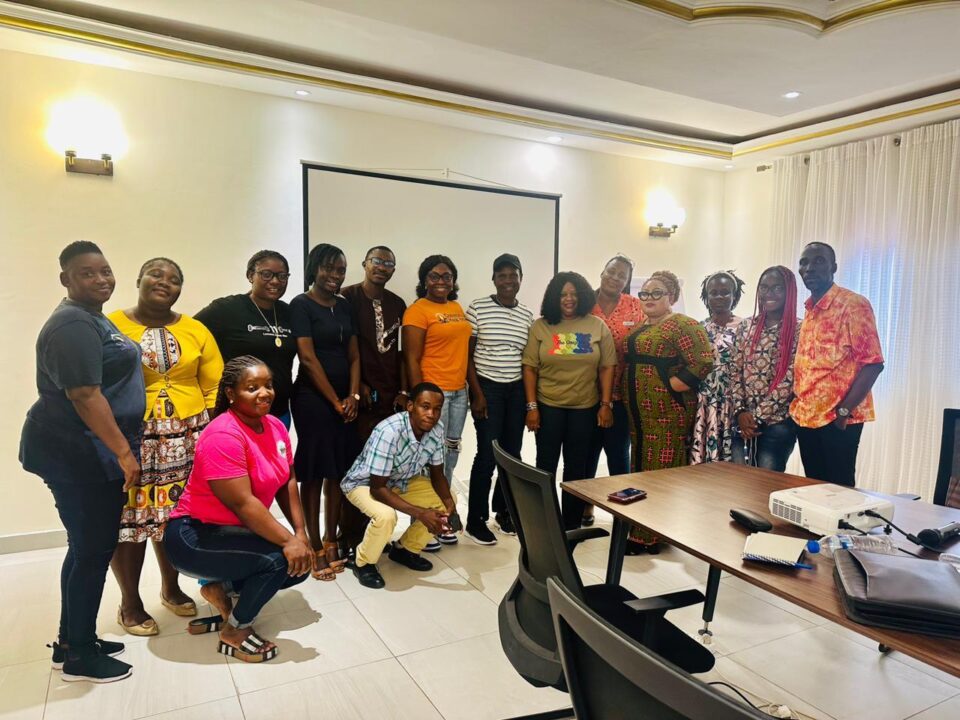By Alfred Kollie, alfredkolliejr92@gmail.com
Several Civil Society Organizations under the banner Female Genital Mutilation (FGM) Consortium and Reproductive Health Rights want both local and international partners to change from Policy to action in the fight against FGM if they must win the fight in Liberia.
The group, which is comprised of the Community Healthcare Initiative, He For She Crusader Liberia, Sister Hands, LAPS Sisteraid, and the Association of Female Lawyers of Liberia (AFELL), among others, was established to network with all of the actors in the fight around FGM and SRHR from the community-based level to the Policy and national level.
Speaking at a one-day dialogue over the weekend at a local hotel in Congo Town, the Executive Director of Community Healthcare Initiative, Madam Naomi Tulay-Solanke noted that the day-long dialogue was about discussing the current situation around FGM in Liberia, especially looking at the post-spotlight initiative and to know where Liberia stands as a country in the fight against FGM.
“We want to know the progress we have made so far as civil society, what important role we need to play to strengthen the eradication of FGM to move from policy to practice, to leave from pageantry to actual implementation within the communities,” Madam Tulay-Solanke explained.
According to her, the engagement was also intended to talk about the status of FGM in Liberia in terms of the activities across the eleven practicing counties, noting that the eleven counties were able to benefit from the Spotlight initiative funding, which was intended to eradicate all forms of violence against girls and young women in Liberia.
She maintained that over the years, they had seen a lot of commitment from traditional practitioners in closing traditional bushes and suspending traditional practices, but who is monitoring and reporting on the effectiveness of these commitments?
“We see that these are just all policy and pageantry in actuality. FGM is still being practiced in communities starting from right here in Montserrado and going beyond as far as Lofa, Kolahun, and Vahun. We need to ensure we are not just committing because we see a development partner in the space. We should commit to saving girls’ and young women’s lives” She narrated.
The Executive Director of Community Healthcare Initiative, however, wants Liberians to commit an effort to ensure that they are creating an enabling space where people can make informed decisions if they should be mutilated or not.
She observed that the conversations around FGM in Liberia are not as holistic as they should be and the impact they should have had after.
“Many years of Spotlight initiatives, an intervention in Liberia, but we don’t see it in actuality. So we as civil society organizations think that it is on us to reflect on where our gains, what are the places we went wrong, how do we engage development partners to collectively work together in terms of moving forward”
She believed that now is the time for the Liberians to put their voices into action, moving from having evidence-based research that will inform their advocacy by targeting messages that they need to take to their community, traditional leaders, and grandparents in rural communities, and amplifying women’s rights.
At the same time, she calls on Liberians not to play politics around the issue that affects people like them, girls, and young women’s livelihood.
“FGM affects the life of people, and these people are girls and young women who are entitled to quality life, quality healthcare, and education. We need to put them first and not ourselves. We need to ensure that we are moving from policy to practice and implementation,” She ended.
In remarks, the National Coordinator of a local civil Society organization, He For She Crusader Liberia, Tamba F. Johnson noted that FGM is still on the increase in Liberia.
On February 6, 2023 in Sonkay Town, Montserrado to commemorate International Day of Zero Tolerance on FGM, the government of Liberia through the National Council of Chief and Elders officially banned the practice in Liberia.
However, the FGM Consortium said to adequately notify traditional leaders and implement strict cultural measures for long-term enforcement of the ban on FGM, formal traditional ritual ceremonies had to take place in the 11 FGM-practicing counties.
FGM is a component of the traditional Sande society that has been banned in Liberia while the practice of Sande continues without mutilation in the Country.
According to Johnson, lack of regulations, monitoring, and lack of logistics among others are factors undermining the ban in the country.

